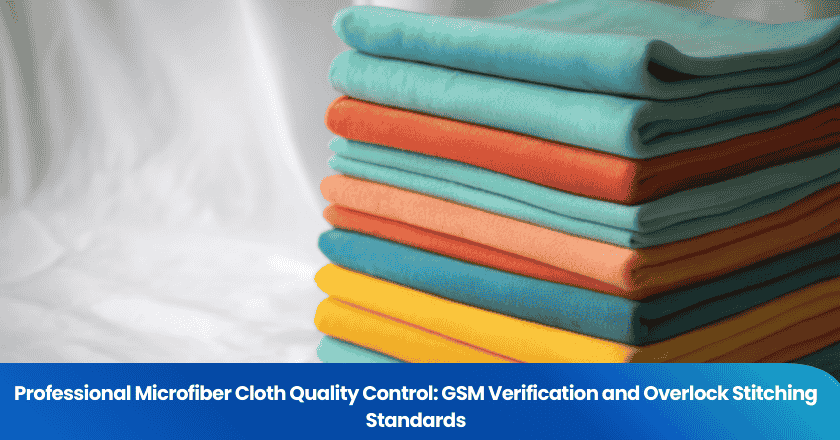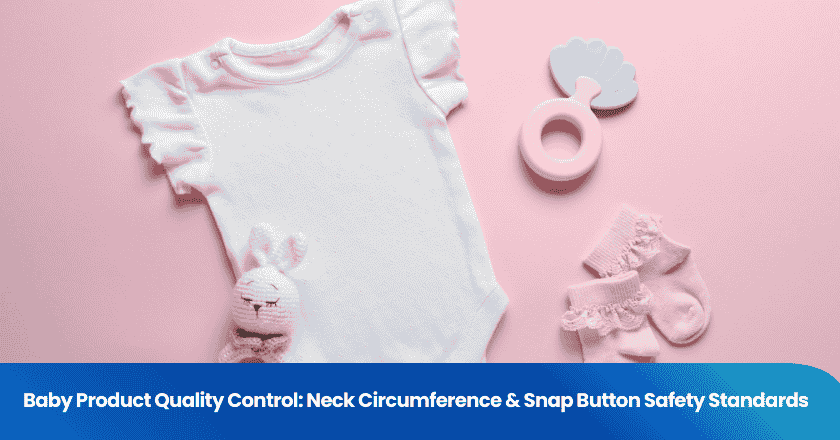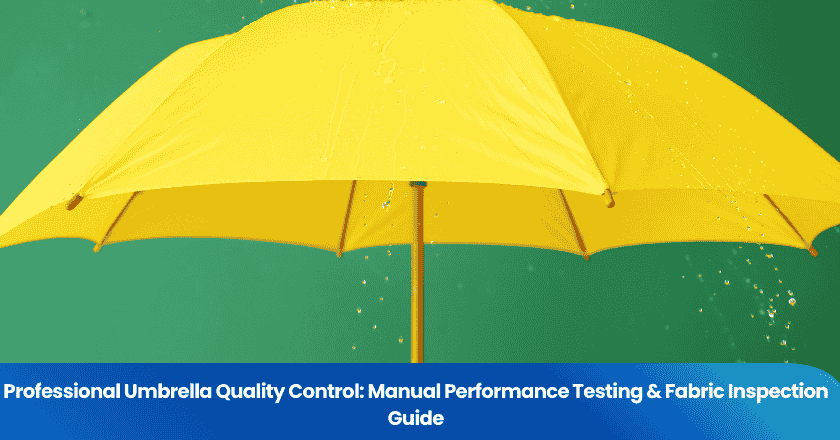
To select the right quality inspection service provider in 2025, you should look for expertise that matches your industry needs. Check for certifications like ISO 9001 or ASQ CQI to ensure high standards. Evaluate providers based on their services, reporting accuracy, and ability to deliver tailored solutions. Consider if third-party inspections or in-house teams fit your workflow. Focus on reputation, transparency, and how well technology supports your quality goals.
Key Takeaways
- Choose providers with recognized certifications like ISO 9001 or ASQ CQI to ensure high quality and compliance.
- Evaluate the provider's industry experience to ensure they understand your specific challenges and can deliver accurate inspections.
- Look for tailored solutions that fit your unique business needs, enhancing the effectiveness of quality inspections.
- Prioritize providers with a strong reputation and positive client reviews to ensure reliability and consistent results.
- Utilize advanced quality inspection software to improve accuracy, efficiency, and decision-making in your quality control processes.
Why the Right Quality Inspection Service Matters
Impact on Product Quality
You rely on quality inspection service providers to ensure your products meet the highest standards. When you choose providers with proven expertise, you gain confidence that every item leaving your facility meets your expectations. Skilled providers catch defects early, which prevents costly returns and rework. You avoid the risk of subpar products reaching your customers. Consistent inspections also help you build a reputation for reliability and excellence.
Tip: Early detection of defects not only saves money but also protects your brand image in competitive markets.
If you select unqualified providers, you face several risks:
- Untrained inspectors may overlook critical issues in your manufacturing or shipping processes.
- Subjective judgments can lead to inconsistent results, increasing the chance of defective products reaching customers.
- Inconsistent inspection methods create confusion and unreliable outcomes.
Compliance and Business Success
Your choice of providers directly affects your ability to comply with industry regulations. Providers with the right expertise and certifications help you demonstrate a commitment to meeting standards. This approach reduces the risk of legal fines and costly penalties. You also avoid unexpected financial liabilities that can arise if providers lack valid insurance or certification.
A strong inspection process supports your business success in several ways:
1. Identifying and addressing defects early reduces costs from rework and recalls.
2. Improved operational efficiency leads to higher profitability.
3. Consistent quality bolsters your brand reputation and fosters customer loyalty.
You should also look for providers who offer clear reporting and align their third-party inspections with your internal schedules. This ensures you always have the information you need to make informed decisions and maintain compliance.
Key Criteria for Choosing a Quality Inspection Service
Certifications (ISO 9001, ASQ CQI)
You should always verify that providers hold recognized certifications such as ISO 9001 or ASQ CQI. These certifications show that the provider follows strict quality management systems and industry best practices. Certified providers demonstrate a commitment to continuous improvement and compliance. When you work with certified experts, you reduce the risk of non-compliance and ensure your products meet regulatory requirements.
Tip: Ask for up-to-date certificates and check if the provider’s auditors receive regular training.
Industry Experience and Track Record
Industry experience plays a vital role in the effectiveness of quality inspection service providers. You benefit from inspectors who understand your sector’s unique challenges and standards. Their expertise allows them to spot issues quickly and interpret complex product specifications. Providers with a strong track record help you maintain compliance and deliver consistent product quality.
- Experienced inspectors ensure compliance with industry standards.
- Their knowledge leads to accurate inspections and better product outcomes.
- They understand complex specifications and regulatory requirements.
You should review case studies and client testimonials to evaluate a provider’s effectiveness. Providers with a history of successful projects in your industry offer more reliable results.
Service Offerings and Reporting
A comprehensive range of services and robust reporting capabilities set top providers apart. You need to ensure that the provider offers the specific inspection services your business requires. Clear, detailed reporting helps you make informed decisions and track quality trends over time.
| Service Offering | Description |
|---|---|
| Dimensional Inspection Services | Ensures manufactured parts meet exact specifications and maintain consistent quality throughout production. |
| In-Process Inspection | Provides real-time quality assurance during manufacturing operations, identifying issues before they impact production. |
| Sorting Services | Helps in the classification of components to ensure only quality products proceed in the manufacturing process. |
| SPC Data Collection | Offers insights into process capability and stability through systematic measurement and analysis. |
| CMM Inspection | Represents the gold standard in dimensional measurement, providing unparalleled accuracy and detailed reports. |
| PPAP Services | Ensures that all design specifications and requirements are consistently met throughout production. |
| First Article Inspection | Critical verification of production methods and output to ensure compliance with design specifications. |
You should also assess the provider’s ability to deliver timely and actionable reports. Reliable reporting supports your decision-making and helps you address issues before they escalate.
Tailored Solutions for Your Business
Every business has unique quality needs. Providers who offer tailored solutions can adapt their approach to fit your specific requirements. Customization leads to better outcomes, especially in industries with strict regulations or complex supply chains.
| Industries Served | Key Benefits |
|---|---|
| Automotive, Medical Devices, Consumer Products | Comprehensive quality assurance, risk mitigation, supply chain management |
| Consumer Products, Food, Life Sciences | Tailored solutions, visibility in quality control, compliance support |
| Manufacturing, Healthcare, Consumer Goods | Sector-specific solutions, compliance audits, risk management |
| Food, Pharmaceuticals, Transportation | Total Quality Assurance, operational excellence, sustainability solutions |
You should discuss your business goals and challenges with potential providers. Providers who listen and adapt their services to your needs deliver greater value.
Reputation and Client Reviews
Reputation serves as a strong indicator of a provider’s reliability. You should research client reviews and industry feedback before making a decision. Positive reviews and long-term client relationships suggest that the provider delivers consistent results. You can also ask for references or case studies to see how the provider has solved challenges similar to yours.
Note: Avoid common mistakes such as choosing providers without standardized procedures or those who do not integrate with your existing systems. Look for providers who offer user-friendly tools and make full use of inspection data to improve your processes.
Comparing Third-Party Inspections and In-House Options
Pros and Cons of Third-Party Inspections
When you evaluate third-party inspections against in-house teams, you notice clear differences in cost, flexibility, and control. Third-party inspections offer enhanced objectivity and unbiased evaluation. You benefit from providers with specialized expertise and advanced tools, which ensures compliance with industry standards. These services help you manage risk and improve customer confidence.
| Aspect | In-House Inspections | Third-Party Inspections |
|---|---|---|
| Initial Investment | High | Low |
| Ongoing Costs | Minimal after setup | Can accumulate |
| Cost-Effectiveness | Best for frequent needs | Best for occasional needs |
| Flexibility | Limited | High |
In-house teams give you complete control and immediate action on issues. They understand your processes and can tailor inspections. However, they require significant investment and may struggle to scale quickly. Third-party inspections adapt to changing business needs, offering flexibility and cost efficiency.
Note: Outsourcing inspections allows you to scale services up or down as your business grows.
Aligning Inspections with Internal Schedules
You maximize efficiency by aligning inspection schedules with your production timelines. Assess your production requirements and match the provider’s expertise to your industry. Ensure the provider can meet your deadlines without compromising quality. Collaboration between your team and the home inspection company improves planning and communication.
| Key Practices | Description |
|---|---|
| Assess Requirements | Check if your team and equipment can handle the workload. |
| Match Specializations | Choose providers with relevant expertise for your products. |
| Understand Timelines | Confirm the provider can meet your production schedule. |
| Scalability | Adjust inspection capacity as your needs change. |
| Collaboration | Share updates and feedback to improve efficiency. |
| Data-Driven Decisions | Use centralized data for better reporting and performance analysis. |
By choosing the right mix of in-house and third-party inspections, you ensure your quality inspection service meets your business goals.
Technology in Quality Inspection Software
Modern quality inspection software has transformed how you manage and monitor quality inspection service. You now have access to tools that improve accuracy, efficiency, and decision-making. Providers use advanced inspection management software to streamline processes, reduce errors, and deliver faster results. These solutions help you adapt to changing industry standards and customer expectations.
Best Quality Inspection Software Features
When you evaluate inspection management software, you should look for features that support your business goals and enhance your team’s expertise. The best quality inspection software offers:
| Feature | Description |
|---|---|
| Real-time data collection | Provides actionable insights and real-time defect detection. |
| Automated workflows | Speeds up quality control processes while minimizing human errors. |
| Reports and analytics | Offers valuable data for continuous improvement. |
| Mobile-friendly | Allows scheduling and conducting audits from any location. |
| Compliance management | Ensures products or services adhere to industry standards. |
You benefit from advanced GD&T functions that improve compliance and efficiency when applying technical specifications. Customizable optimization during CAD imports lets you tailor workflows to your needs. Simulation tools in inspection management software reduce downtime and increase productivity. SoftTouch modes for sensors can cut measurement time by up to 40%. Certified evaluation algorithms eliminate uncertainties and improve reporting. Data collaboration features help you make quick, informed decisions.
Tip: Choose inspection management software that integrates easily with your existing systems and supports your team’s expertise.
Reporting and Monitoring Capabilities
Quality inspection software gives you real-time insights that help you spot trends and patterns quickly. You can take immediate action to correct issues, which improves your manufacturing processes. Consistent data collection makes it easier to integrate quality data into other workstreams. Efficient sharing of information across your organization clarifies the value of quality inspection service and reduces incident rates at different sites.
Providers who use the best quality inspection software enable you to make data-driven decisions. Automation of scheduling, data entry, and report generation reduces human error. Integration of IoT devices provides real-time data on conditions like pressure and temperature. These trends in inspection management software adoption help you stay ahead of stricter regulations and improve your home inspection services.
Companies that use advanced inspection management software see higher client satisfaction. Early defect detection reduces waste and rework, leading to better outcomes for your customers. AI-powered systems in inventory management also boost efficiency and accuracy, which supports your business success.
Questions to Ask Before Choosing a Provider
When you start evaluating providers for quality control inspections, you need a structured approach. Asking the right questions helps you compare expertise, service offerings, and regulatory compliance. This process transforms your initial impressions into actionable data, helping you validate your preferences with concrete evidence.
Verifying Qualifications and Certifications
You should always confirm that certified home inspectors handle your quality control processes. Ask for proof of certifications and training. Request details about their experience with regulatory compliance and industry standards. Consider these questions:
- Are your certified home inspectors trained in the latest quality control inspections?
- Can you provide documentation of regulatory compliance for your home inspection services?
- How do you ensure ongoing education for your team?
Choosing the right home inspection company means checking that their expertise matches your needs. Certified home inspectors bring credibility and help you meet strict regulatory compliance requirements.
Assessing Service Transparency and Support
Transparency builds trust between you and the home inspection company. Review their contracts and support policies before making a decision. Use this table to guide your assessment:
| Key Aspect | Description |
|---|---|
| Clear Terms | Contracts should use plain language and outline all service details, payment, and cancellation policies. |
| Transparency in Agreements | Important terms should be highlighted, and simple charts can show openness. |
| Real-World Examples | Scenarios in contracts help you understand what to expect from home inspection company agreements. |
| Customer Trust | Transparent contracts improve relationships and lead to better reviews. |
| Balanced Needs | Agreements should avoid hidden fees and balance both parties’ interests. |
Ask how the home inspection company supports you during and after inspections. Reliable support ensures your quality control processes run smoothly.
Understanding Pricing and Agreements
You need to understand all costs before choosing the right home inspection company. Ask for a breakdown of pricing and any additional fees. Clarify how inspection management software integrates with your systems and whether it affects pricing. Key questions include:
- What is included in your service fee?
- Are there extra charges for using inspection management software or advanced reporting?
- How do you handle contract changes or cancellations?
A clear agreement helps you avoid surprises and ensures the home inspection company aligns with your business goals. Inspection management software should support your quality control processes and regulatory compliance without hidden costs.
Tip: Use a consistent evaluation matrix to compare home inspection company options. This approach helps you analyze quality, delivery, cost, and compliance.
You improve your selection process by focusing on expertise, reputation, and the importance of certified inspectors. Providers with strong credentials and advanced technology deliver measurable results. You should review each home inspection report carefully and understand the role of a home inspection company in maintaining standards.
- Evaluate expertise and reputation through supplier audits and documented performance.
- Confirm certifications and monitor ongoing quality improvement with regular inspections.
- Use automated workflows and thorough training to enhance your team’s effectiveness.
A detailed home inspection report builds trust and supports your reputation for quality.
You gain confidence when you apply these criteria and take action to assess providers.
FAQ
What role does safety play in the quality inspection process?
Safety drives every step of the quality inspection process. You protect your team and customers by following strict safety protocols. Inspector training focuses on hazard identification and risk reduction. Safety measures ensure compliance and prevent accidents during inspections.
How does specialized knowledge improve flexibility in inspections?
Specialized knowledge allows you to adapt inspection methods for different products and industries. Inspector expertise increases flexibility, enabling quick adjustments to changing requirements. You gain accurate results and maintain safety standards, even when your production needs shift.
Why should you trust inspector objective assessments?
Inspector objective assessments provide unbiased evaluations of your products. You receive reliable data that supports your quality assurance processes. Objective assessments help you identify safety risks and maintain consistency. Inspector training in specialized knowledge ensures accurate, impartial results.
How do automated inspection systems enhance safety and flexibility?
Automated inspection systems reduce human error and improve safety. You benefit from faster inspections and increased flexibility in scheduling. Inspector oversight ensures that automated systems apply specialized knowledge to detect defects. Automation supports consistent safety standards across your operations.
What makes inspector specialized knowledge essential for quality assurance processes?
Inspector specialized knowledge ensures thorough inspections and accurate reporting. You rely on inspectors to identify safety hazards and maintain compliance. Their expertise supports flexibility in adapting to new regulations. Specialized knowledge strengthens your quality assurance processes and protects your reputation.
Grow your business with TradeAider Service
Click the button below to directly enter the TradeAider Service System. The simple steps from booking and payment to receiving reports are easy to operate.





